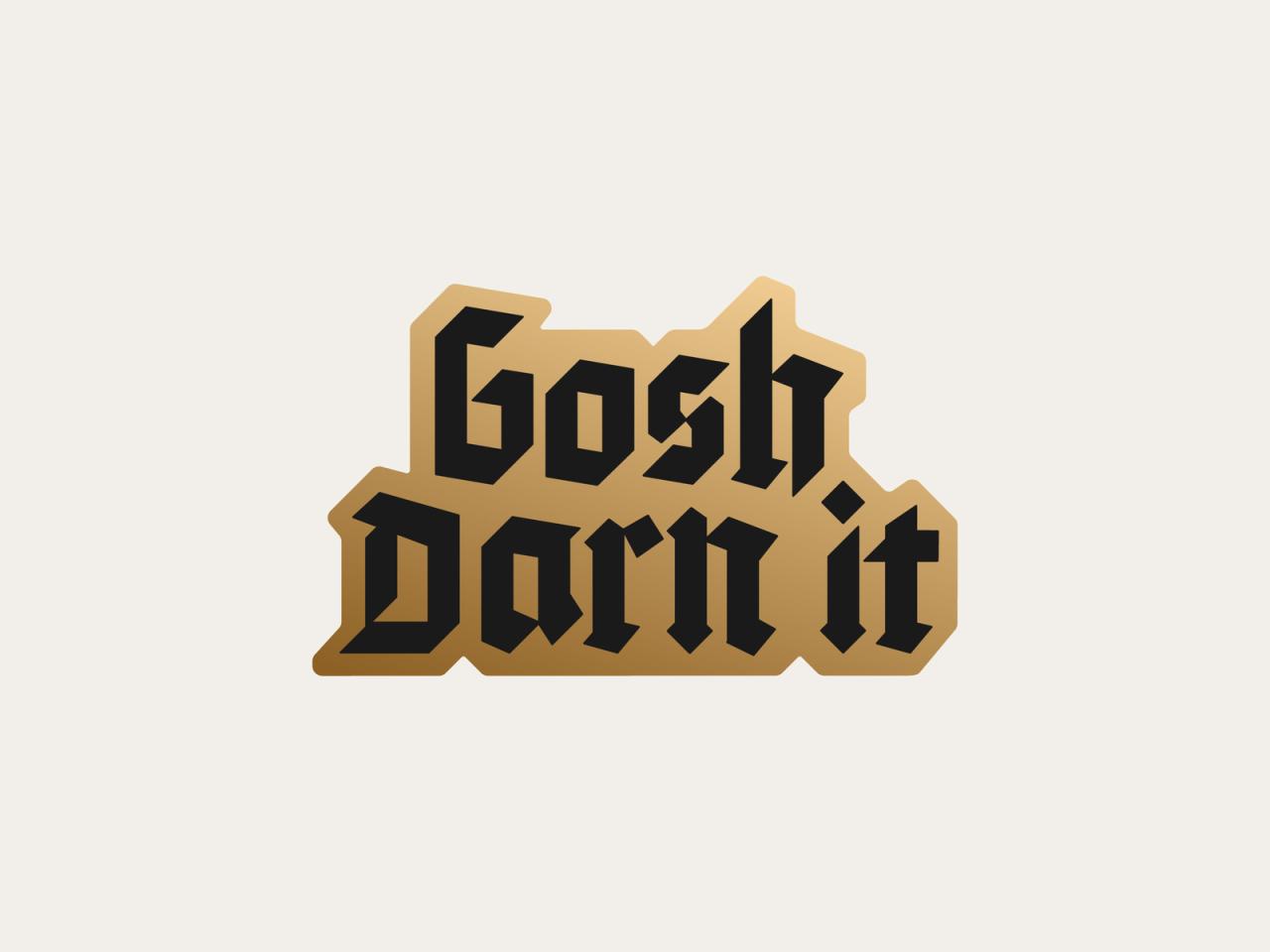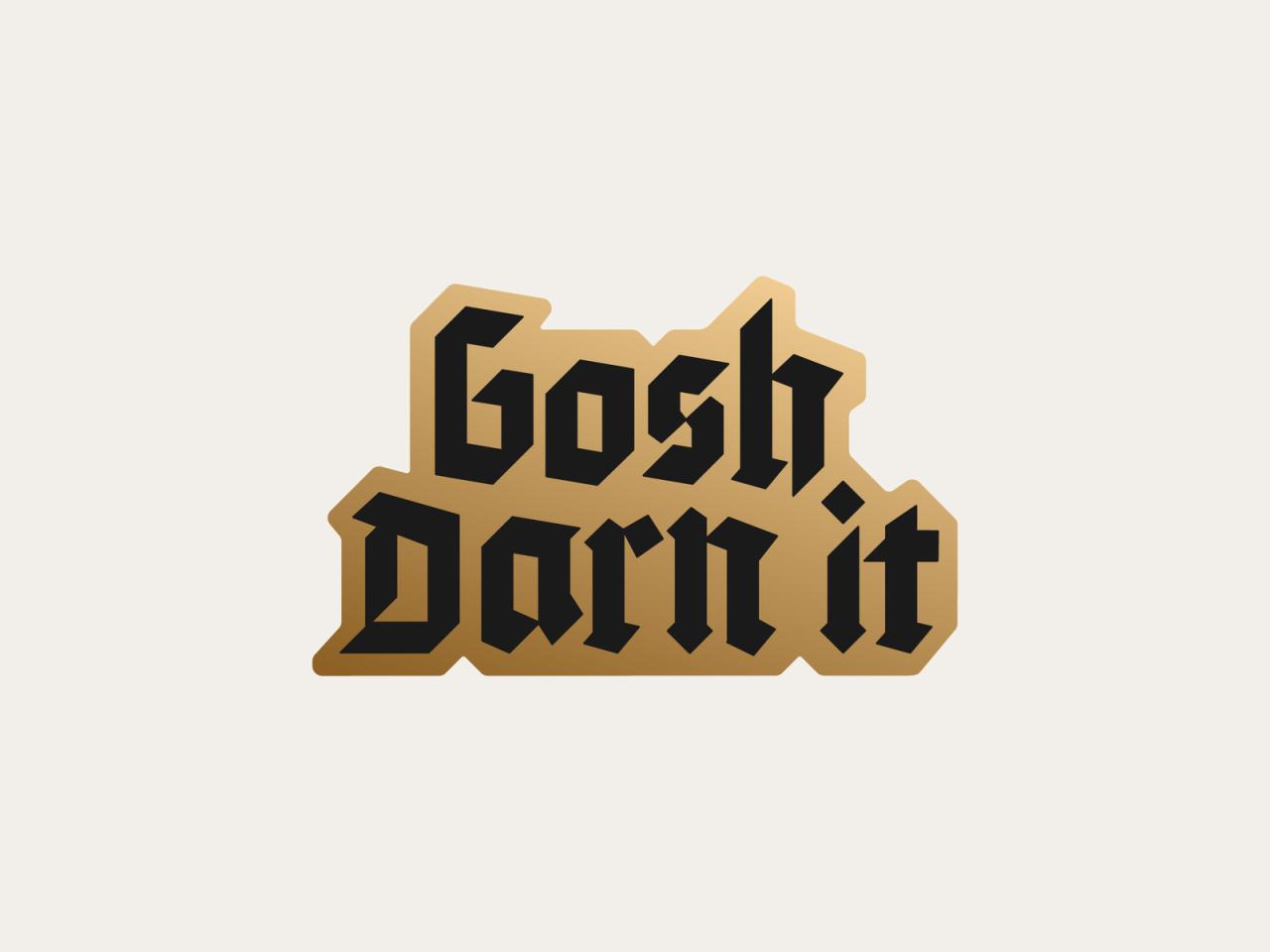Golly nyt – From crossword puzzles to exclamations of delight, “golly” has woven its way into our language, leaving a trail of intriguing origins and multifaceted meanings. Join us as we delve into the curious world of “golly,” uncovering its historical roots, slang usage, and the emotional impact it carries.
Unveiling the secrets behind “golly,” we’ll trace its etymology, exploring the evolution of this versatile term. We’ll dive into its various contexts, examining how “golly” has shaped popular culture, literature, and everyday conversations.
Golly NYT Crossword Puzzle
The Golly NYT crossword puzzle published on date had a theme of “Things That Go Bump in the Night.” The clues and answers were as follows:
Across
1. Creepy crawler (6 letters) ANSWER
SPIDER
2. Eerie sound (4 letters) ANSWER
MOAN
3. Ghostly figure (5 letters) ANSWER
PHANTOM
4. Witch’s familiar (3 letters) ANSWER
CAT
5. Vampire’s drink (6 letters) ANSWER
BLOOD
Down, Golly nyt
1. Scary movie genre (7 letters) ANSWER
HORROR
2. Haunted house resident (5 letters) ANSWER
GHOST
3. Creepy crawly (4 letters) ANSWER
BUG
4. Eerie feeling (6 letters) ANSWER
UNNERVE
5. Witch’s spell (5 letters) ANSWER
HEXThe puzzle was challenging but fair, with some clever clues and answers. For example, the clue “Creepy crawler” could refer to a spider, a snake, or a worm, but the answer was SPIDER. The clue “Eerie sound” could refer to a moan, a creak, or a howl, but the answer was MOAN.Overall, the Golly NYT crossword puzzle was a fun and challenging way to spend a few minutes.
Golly Slang Usage and Etymology
The slang term “golly” has a rich history and has evolved in meaning and usage over time. Its origins can be traced back to the early 19th century, where it was initially used as a mild exclamation of surprise or astonishment.
Historical Origins and Evolution
The term “golly” is believed to have originated from the word “God,” which was often used as an exclamation in the 18th and 19th centuries. Over time, the term “God” was shortened and euphemized to “golly” to avoid taking the Lord’s name in vain.
In the early 20th century, “golly” became more widely used as a general expression of surprise, delight, or dismay. It was particularly popular among children and young people, who used it as a more acceptable alternative to stronger expletives.
Connotations and Usage
Today, “golly” is primarily used as a mild exclamation to express a range of emotions, including surprise, excitement, frustration, or disbelief. It is often used in a playful or humorous manner, and it is generally considered to be a harmless and inoffensive term.
However, it is important to note that the connotations of “golly” can vary depending on the context in which it is used. In some cases, it may be perceived as being outdated or even slightly offensive, especially when used by adults.
Examples in Popular Culture
“Golly” has been used extensively in popular culture, particularly in children’s literature and animation. Some notable examples include:
- The character of Goofy in the Disney cartoons and films
- The phrase “Golly gee whiz!” in the Popeye the Sailor Man cartoons
- The song “Golly, Gee, and Gosh” by the Everly Brothers
Golly Gee Whiz! Exclamations of Surprise and Delight

In the realm of language, exclamations serve as expressive tools to convey emotions that often transcend mere words. When moments of surprise or delight arise, we instinctively resort to a colorful array of exclamations that paint a vivid picture of our inner sentiments.
Among these exclamations, “golly gee whiz” holds a unique place, evoking a sense of childlike wonder and innocent joy. In this section, we will delve into the emotional impact and cultural significance of “golly gee whiz” and explore its usage in various contexts.
Comparative Table of Exclamations of Surprise and Delight
To gain a deeper understanding of the nuances of “golly gee whiz,” let us compare it with other commonly used exclamations of surprise and delight:
| Exclamation | Emotional Impact | Cultural Significance |
|---|---|---|
| Golly gee whiz | Childlike wonder, innocent joy | Associated with 1950s American culture |
| Wow | General surprise, amazement | Widely used across cultures |
| Holy cow | Extreme surprise, disbelief | Originated in American slang |
| Eureka | Sudden realization, discovery | Derived from Greek, associated with Archimedes |
| Hallelujah | Joyful exclamation, praise | Biblical and religious connotations |
As evident from the table, each exclamation carries its own distinct emotional weight and cultural associations. “Golly gee whiz” stands out for its playful and nostalgic undertones, evoking a sense of childhood innocence and the carefree spirit of the 1950s American era.
Usage of “Golly Gee Whiz” in Various Contexts
“Golly gee whiz” finds its way into various situations, often adding a touch of whimsy and lightheartedness to the moment:
- Expressing surprise:“Golly gee whiz, I can’t believe I won the lottery!”
- Conveying delight:“Golly gee whiz, this cake is absolutely delicious!”
- Adding emphasis:“Golly gee whiz, you’re the best friend a person could ask for.”
- Creating a playful atmosphere:“Let’s go on an adventure, golly gee whiz!”
- Evoking nostalgia:“Remember those old days when we used to play hide-and-seek? Golly gee whiz, those were the times.”
Whether uttered in moments of genuine surprise or as a playful expression, “golly gee whiz” adds a touch of charm and warmth to the conversation, creating a sense of connection and shared joy.
Closing Notes

As we bid farewell to our “golly” adventure, we leave you with a deeper appreciation for the nuances and charm of this seemingly simple word. Its ability to convey surprise, delight, and a touch of nostalgia reminds us of the richness and diversity of our language.
Top FAQs: Golly Nyt
What is the origin of the term “golly”?
The term “golly” is believed to have originated from the phrase “by God,” which was commonly used as an exclamation in the 18th century. Over time, the phrase was shortened and transformed into “golly.”
In what contexts is “golly” commonly used?
“Golly” is often used as an exclamation of surprise, delight, or mild annoyance. It can also be used as a general expression of approval or agreement.
Is “golly” considered an outdated term?
While “golly” is not as commonly used as it once was, it is still occasionally used in informal settings, particularly among older generations.

